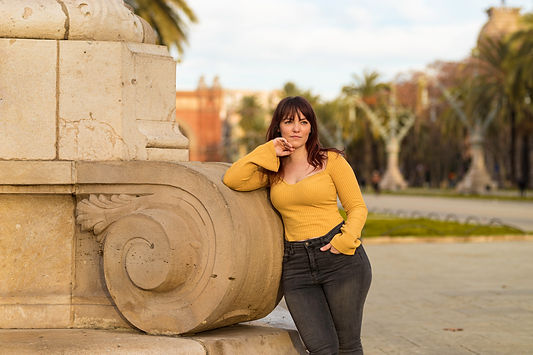
Effective Facilitation
Ready for Real Results?
Elevate Your Team Dynamics:
Facilitation Services by Alice Everdeen
Facilitation is the art of guiding team interactions to enhance collaboration, communication, and problem-solving towards achieving shared goals.
As a facilitator, my goal is to create an environment that fosters open dialogue, active participation, and constructive conflict resolution among team members.
By encouraging teamwork, effectively problem solving, and maintaining focus on your objectives, I can help empower your team to navigate challenges and reach success together.
As Featured In




Drive Success with Expert Facilitation
Ever sat through hours of unproductive meetings or training sessions? Yeah, we've all been there. But what if I told you that there's a person whose sole purpose is to make sure those meetings and sessions are efficient and effective, so you can meet your goals faster? That's where I come in.
What the heck is facilitation and why do I need it?
Facilitators are key in bringing people together and guiding them towards a common goal. Their main job is to create a space where everyone feels comfortable and encouraged to share their ideas and thoughts. They act as a neutral party, making sure all voices are heard and respected. As a facilitation expert, I've seen firsthand the positive impact it can have on a team's productivity and collaboration.
So, what does a facilitator actually do? Think of them as a supportive leader, helping the group work together smoothly. They don't dictate or make decisions for the team but instead guide the process and make sure everyone's voice gets heard.
What does facilitation look like for teams?
Facilitation works great in different settings like business meetings, training sessions, strategic planning workshops, or team-building activities. In each of these, a facilitator helps create a productive and inclusive space for everyone involved.
The purpose of a facilitation session is to address a specific issue or achieve a particular goal, and facilitation can look different depending on the group and the objectives.
For a small startup, the facilitator may act as a mediator, ensuring that all team members have an equal say in decision-making and addressing conflicts. In a large corporation, a facilitator may lead workshops to help employees develop new skills or improve teamwork.
Here are some more examples of goals that a facilitator can help a team achieve:
-
Brainstorming and idea generation: A facilitator can guide a team through a structured brainstorming session, encouraging everyone to contribute and build upon each other's ideas.
-
Problem-solving: Facilitation can be useful in addressing complex issues that require input from different perspectives. A facilitator can help the team break down the problem into smaller pieces, identify potential solutions, and come to a consensus on the best course of action.
-
Decision-making: A facilitator can assist a team in making decisions by guiding the group through a structured decision-making process, considering all relevant information and perspectives.
-
Team building: Facilitated team-building activities can help improve communication, trust, and collaboration within a team. A skilled facilitator can design and lead activities that promote teamwork and strengthen relationships among team members.
Why is facilitation necessary?
Facilitation promotes a more inclusive and collaborative way of solving problems. By getting everyone involved and appreciating their input, it can lead to more creative solutions and better decisions. It also encourages open communication and builds trust among team members, resulting in stronger teamwork and camaraderie. In short, it helps a team reach its full potential while saving time and money. It's a win-win-win.
What does a typical facilitation workshop look like?
A typical facilitation session kicks off with a warm welcome and an intro to make everyone feel at ease. I set the tone by creating a friendly, open environment, encouraging participants to get comfortable. I love starting with a fun icebreaker to help everyone relax and get to know each other a bit better.
Next, I go over the agenda and the session's objectives, making sure everyone understands the purpose and what we aim to achieve. This step is crucial as it sets clear expectations and gives the group direction.
Next, I go over the main topics or issues we’ll be discussing, using tools like flip charts, whiteboards, or digital presentations to highlight the key points. I encourage everyone to chime in with their thoughts, making sure everyone gets a chance to share their opinions and ideas. I use techniques like brainstorming, small group discussions, and role-playing to keep everyone engaged and the conversation flowing.
Throughout the session, I keep things on track and gently steer us back if we start to wander off-topic. I also make sure each part of the session gets enough attention without feeling rushed or dragging on.
As the session winds down, I help the group recap the main points and any decisions made. I also ask for feedback, giving everyone a chance to reflect on what we accomplished and how they feel about the process. We use this time to set actionable next steps or assign tasks, ensuring there's a clear path forward.
I wrap up on a positive note, thanking everyone for their contributions and participation. If requested, I provide notes or a summary of key outcomes afterward to make sure we're all on the same page moving forward.
It's important for everyone to leave feeling good about the progress and motivated to keep working towards our common goal.
Sounds great! What's next?
Overall, facilitation is a great way to create an inclusive and productive space for everyone. It gives everyone a chance to speak up, boosts collaboration, and helps hit common goals.
Ready to boost your productivity with an expert facilitator? Get in touch with me to schedule a session. Together, we can get awesome results for your team or organization.


"WONDERFUL!!! [Alice] was friendly, very knowledgeable, and created a learning environment."
"Amazing facilitator. Super down to earth and easy to understand."
"Great presenter! Loved her presentation style and content. Already recommended the sessions to people that could not make it!"
What Sets Me Apart
Experienced
As a certified facilitator, I have undergone extensive training to ensure effective and impactful discussions. My lighthearted and trauma-informed approach ensures that everyone's needs and perspectives are respected.
Engaging
Expect a dynamic and interactive workshop that will keep everyone engaged and involved throughout the entire session. You can trust that our time together will be both productive, educational, and enjoyable
Customized
One size does not fit all. By tailoring the workshop exercises and format, we can address any unique challenges or objectives your group may have, making sure everyone walks away with valuable takeaways.

Teams that work well together are 50% more productive. (Stanford University)
My Unique Facilitation Process

37% of employees stay at their workplace because of a great team. (Gusto)
Your Questions. My Answers.
What exactly is facilitation?
Facilitation is the process of guiding a group through discussions, activities, or decision-making processes to achieve their goals. It's all about creating a supportive environment where everyone can contribute effectively. Think of it as having a neutral yet dynamic guide helping steer the conversation toward a productive outcome.
How does a facilitator prepare for a session?
Preparation is key for any successful facilitation. A good facilitator gathers all important materials like handouts and slides, gets to know the participants and their goals, and plans the agenda carefully. This ensures everything runs smoothly and allows the facilitator to focus on engagement and interaction during the session.
How do facilitators handle conflicts or disagreements during a session?
Conflict is a natural part of any group discussion, and skilled facilitators are trained to handle it constructively. They ensure all viewpoints are heard, mediate with neutrality, and steer the conversation back to the common goals. This helps transform conflict into a source of creative solutions rather than a roadblock.
Why do I need a facilitator for my meeting or workshop?
Having a facilitator can make a world of difference in how smoothly your meeting or workshop runs. They help keep discussions on track, ensure everyone's voice is heard, and assist in reaching clear, actionable outcomes. Plus, it frees you up to participate fully without worrying about managing the process.
What methods do facilitators use to encourage participation?
Facilitators use a variety of strategies to get everyone involved. They might ask open-ended questions, create breakout discussions, or use interactive tools like polls and whiteboards. The goal is to make sure everyone feels included and invested in the conversation.
What kind of outcomes can I expect from facilitated sessions?
Facilitated sessions aim to leave you with clear, actionable outcomes. This often includes well-documented decisions, defined next steps, and a sense of accomplishment among participants. The facilitator ensures that everyone knows what happens next, making the session not just productive but also meaningful.